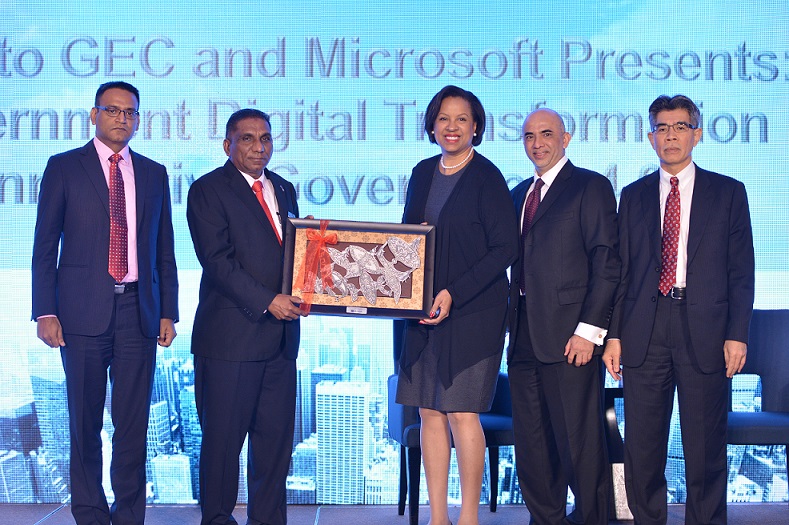Budget 2017 to focus on Malaysia’s digital economy
By Anushia Kandasivam October 7, 2016
- Malaysian government focused on digitising the nation
- Technology immersion changing how governments, citizens interact

MALAYSIA'S Treasury Secretary-General Dr Mohd Irwan Serigar Abdullah said on Oct 6 that the government is placing strong emphasis on developing the nation’s digital economy, and is making this the focus of the 2017 Budget.
“Malaysia’s digital economy currently contributes 16.3% to Malaysia’s gross domestic product. A thriving digital economy has the ability to contribute some 20% to the GDP by 2020,” he said, speaking at the Road to GECommunity event today (part of the lead-up to Global Entrepreneurship Community 2016) where he gave a keynote address entitled Government Digital Transformation: Innovative Government 4.0.
“Digital economy and entrepreneurship are inter-related, and they are going to drive the development of not only the Malaysian economy but also that of the world,” Irwan continued. But it is the expected "huge impact" of the digital economy on the technology ecosystem that is driving Malaysia's policy focus. "Malaysia is transforming its economy based on innovation-led growth, which is why we are putting a lot of emphasis on the digital economy in the Budget,” Irwan explained.
The proliferation of digital technology and the connectivity afforded by the cloud is making people more mobile and changing the way people work, learn and play, especially in Asia.
Penetration of mobile and cloud computing technologies is high – 46% of total smartphone users and 30% of tablet users in the world are in Asia. Further, 50% of Asia’s enterprises are on the cloud.
In Malaysia, there are about 21 million Internet users in a population of 30 million, and the mobile phone penetration rate is 143.8%. This year, the country’s information communication technologies are expected to see a growth of 8.8%.
According to Irwan, as the use of digital technology spreads, both people’s expectations of and the way in which the government’s provides citizen services are changing.
“As technology becomes more immersive, we also expect it help us develop more personal and social connections with colleagues and constituents. The connectivity that the cloud offers is changing and we expect it to change even faster [in the future],” he said.
At a panel discussion at the same event, Irwan said that to accelerate Malaysia’s digital transformation in line with the 11th Malaysia Plan and the United Nations’ Sustainable Development Goals, the government will focus on education and enhancing the country’s broadband capacity.
“Education is important to change the way we think into futuristic thinking so that we are prepared for what’s to come,” he said. Citing the example of the recent oil price crisis, he said that diversification – into a digital economy - is key to sustaining economic growth.
“We are looking to diversifying away from depending on commodities and moving to other sectors, especially the services sector, which will be the drivers of economic growth in the future.”
At the same event, the Ministry of Finance received the Innovation Excellence Award 2016 from Microsoft Malaysia for implementing innovative technologies to enhance public service delivery and provide role-based training for civil servants. The award was presented to Irwan by Microsoft’s Corporate vice president of Worldwide Public Sector Toni Townes-Whitley.
Related Stories:
MDEC developing ‘digital maturity index’ for digitalisation
Malaysia focuses on building a data driven Asean
SEA's fintech ecosystem has a long way to go
For more technology news and the latest updates, follow us on Twitter, LinkedIn or Like us on Facebook.


